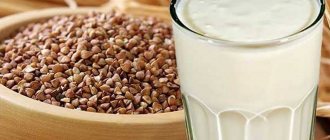How many almonds can you eat per day?
Delicious nuts are a welcome treat for both children and adults. But, as you know, everything is good in moderation. Therefore, consuming even the healthiest food in unlimited quantities will lead to health problems.
When going shopping, remember simple rules on how to choose a fresh and healthy product. The almond shells should not be damaged, they should be the same color, without plaque or musty smell. All nuts should be the same size and shape. Read the composition of the product: it is much healthier if it does not contain salt, sugar and other additives.
What is important?
Another important point to consider is the amount of protein in almonds. There is so much of it that nuts are recommended for athletes and those who refuse meat.
It is very important to know how many almonds you should eat per day. After all, you can’t abuse it so as not to harm your health. And the product itself is very high in calories. 100 grams of fruit contains more than 600 calories.
Thanks to this composition, nuts are very filling. In order to be completely satisfied, it is enough to eat a few grams.
Almonds contain a small amount of sugar, which helps normalize fat metabolism in the body. Because of this ability, it is often recommended by nutritionists for obese people or those who want to lose excess weight.
Composition and beneficial properties
The noble almond nut can replace meat because it contains valuable vegetable protein. In addition, it is rich in fiber, amino acids, easily digestible fats and a whole complex of vitamins.
Therefore, by regularly consuming healthy almonds, you can stay healthy and full of energy for a long time:
- Strengthen the musculoskeletal system.
- Regulate the functioning of the heart muscle and improve the functioning of the gastrointestinal tract.
- Restore and increase potency in the stronger sex.
- Balance hormone levels in the body.
- Reduce cholesterol and dissolve cholesterol plaques.
- Remove poisons and toxins, rejuvenate the body, increase immunity.
- Significantly improve the quality of mother's milk.
Regular consumption of almonds allows you to promptly cleanse the intestines of toxins, increase physical activity, relieve fatigue and restore a youthful appearance.
How to store almonds at home
Dried almonds are best stored, preferably in the outer shell (although most people sell already shelled drupes, with only a thin skin remaining on the kernel). Unshelled almonds can be kept in the refrigerator or other fairly cool place away from sunlight. Improper storage will lead to the product losing a significant amount of vitamins and minerals and may acquire an unpleasant taste of rancid oil. If you purchased raw almonds and did not at least lightly dry them before storing, they may become moldy.
You may find this article about popular methods for peeling almonds at home useful. Hulled nuts are sometimes needed for preparing hot dishes or desserts.
Did you like the article? Like ♥, subscribe to our channel and you will be one of the first to know about new publications!
And if you have something to share, leave your comments! Your feedback is very important to us!
Daily share of nuts in food
Raw nuts contain 580 kcal per 100 g. But nutritionists do not recommend eating nuts raw. They must be dried or fried, then the proportion of B vitamins will decrease somewhat, but such a product is easier to digest. And although almonds are rich in nutrients, they are still considered a dietary dish. It can be eaten by nursing mothers, men, middle-aged women, and children.
Adults can eat no more than 10 almonds per day to get half the daily requirement of fiber and help the excretory systems work. For children under 14 years old, 3-4 pieces are enough.
Important! Exceeding the daily dose of nuts can lead to poisoning. You should not eat bitter almonds or apricot kernels; the poisons they contain cannot be processed by the body.
Nut value
The usefulness of almonds is due to the rich content of proteins, vegetable fats, vitamins and microelements. Each stone fruit contains a huge supply of nutrients that its seed needs for germination, rooting and further development. The amino acids in nuts support brain activity and improve immunity.
The fats contained in almonds promote the absorption of vitamins A, B and E, supplied along with other foods. Fatty acids improve the functioning of blood vessels, making them elastic. This eliminates the risk of strokes and heart attacks.
Vitamins E and A act as natural antioxidants and help women maintain youth and beauty. They support healthy skin and hair. When used correctly, they reduce the symptoms of psoriasis and dermatitis.
Considering the presence of minerals and a low glycemic index (25 units), we can confidently talk about the benefits of the nut for diabetes. The following microelements are of particular importance:
- Calcium accumulates in tooth enamel and bones, maintaining the strength and stability of these structures.
- Magnesium is an element involved in the conduction of nerve impulses. Important for women during the postpartum and menopausal periods.
- Phosphorus is needed for the growth and health of bone and dental tissues.
- Iron – ensures hematopoietic function and prevents the development of anemia.
- Potassium – regulates the balance of fluids at the cellular and intercellular levels. Delays salt deposition.
Another useful substance that enters the human body when eating almonds is arginine. It regulates weight, increases potency, controls blood sugar. All these properties are preserved only in raw (not fried) kernels.
Are almonds good for children?
Experts believe that vitamin E contained in nuts has a beneficial effect on the body of a child or teenager. In addition, it is useful to offer children such a delicacy during increased mental stress.
Starting from 2 years old, you can carefully introduce your child to the taste of treats. Of course, you need to monitor the reaction, since nuts are strong allergens. Starting from the age of 3, you can gradually introduce almonds into your child’s diet. But you should not exceed the daily norm of 3-4 nuts.
Attention! Don't let children eat apricot kernels! Please note that the lethal dose of such a product for an adult is 50 pieces, for a child, depending on age and body weight, from 20 to 30 pieces.
Benefits of almonds
Almonds are the most popular nuts. In recent years, almonds, a favorite among dieters, have become known for their versatility and health benefits.
Each serving (about 23 almonds) provides 6 grams of protein and 4 grams of fiber, as well as vitamin E, magnesium, riboflavin, calcium and potassium. In addition, almonds are a low glycemic index food. Like other nuts, almonds contain a fairly high amount of fat, approximately 14 grams per serving. Luckily, about 2/3 of these are heart-healthy monounsaturated fats.
Nearly two decades of research shows that almonds may help maintain heart health and cholesterol levels. A 2009 article in the American Journal of Clinical Nutrition (AJCN) reviewed the evidence for nut consumption for a variety of health problems. And it has been observed that almond consumption is associated with a 37% reduction in the risk of death from heart disease [1].
Composition and calorie content
Calories 575 Kcal
- Fat:
49.4 g - Proteins:
21.2 g - Carbohydrates:
21.7 g - Water:
4.7 g - Ash:
3 g - Fiber:
12.2 g
| Vitamins (per 100 g): | Quantity | %RDN |
| Vitamin E (alpha tocopherol) | 25.87-26.22 mg | 173,3% |
| Vitamin B2 (riboflavin) | 0.72-1.01 mg | 44,8% |
| Vitamin B7 (biotin) | 17 mcg | 34% |
| Vitamin B9 (folic acid) | 82-109 mcg | 23,3% |
| Vitamin B3 (PP, niacin) | 2.80-4.33 mg | 18,3% |
| Vitamin B1 (thiamine) | 0.25-0.33 mg | 17% |
| Vitamin B5 (pantothenic acid) | 5555 mg | 10,4% |
| Minerals (per 100 g): | Quantity | %RDN |
| Bor | 200 mcg | 285,7% |
| Silicon | 50 mg | 166,7% |
| Cobalt | 12.3 mcg | 123% |
| Vanadium | 44.9 mcg | 112,3% |
| Manganese | 1920-2290 mcg | 105,1% |
| Nickel | 120-130 mcg | 83,3% |
| Magnesium | 259-277 mg | 66,3% |
| Copper | 100-1100 mcg | 65% |
| Phosphorus | 420-527 mg | 59,1% |
| Zirconium | 23 mcg | 46% |
| Molybdenum | 29.7 mcg | 42,4% |
| Iron | 3.72-5.02 mg | 29,3% |
| Chromium | 10-19 mcg | 29% |
| Potassium | 673-770 mg | 28,9% |
| Zinc | 2600-3700 mcg | 27,5% |
| * Strontium | 2600-3700 mcg | 25% |
| Calcium | 213-279 mg | 21,8% |
| Sulfur | 178 mg | 17,8% |
| Rubidium | 17 mcg | 17% |
Full chemical composition ➤
Other important connections:
- Phytosterols
— 260 mg (472.7% of the RDA)
- Purines
— 13 mg (10% of the RDA)
- Oxalic acid
— 469 mg (117.3% of RDA)
18 Health Benefits of Almonds
- Almonds have been shown to lower cholesterol levels in a study conducted by the American Dietetic Association. Eating it allows you to saturate the body with vitamin E, which promotes the formation of antioxidants that prevent cholesterol from entering the blood.
- The benefits of almonds for the heart were proven in 2014. Scientists have found that eating it can lower blood pressure and stimulate blood flow to internal organs.
- Almonds can be used as a food to lower blood sugar levels as they are a source of magnesium. It is recommended to eat a handful of almonds per day, which is especially useful for people with type 2 diabetes. The nut is named as a product that helps prevent the development of insulin resistance.
- Almonds prevent the development of cardiovascular diseases and Alzheimer's disease , as they contain vitamin E, which acts as a powerful antioxidant. It prevents toxins from entering cells and destroying them. However, excess vitamin E increases the risk of prostate cancer by 17%, so you need to control its intake [2].
- lose weight with almonds due to the fact that they are a source of protein and fiber, but at the same time they are low in carbohydrates. After eating it, the feeling of fullness remains for a long time, which means that a person consumes fewer calories.
- Almonds are a source of protein , fiber, healthy fats, vitamin E, manganese, magnesium, copper, phosphorus, vitamin B12. At the same time, 28 g of nuts contain 161 kcal.
- Almonds are no less good for vision than carrots. This is possible due to the high content of vitamin E. However, you should not get too carried away with nuts, since they are quite high in calories and, if consumed uncontrolled, can cause weight gain.
- Almonds are a product with antioxidant properties ; they prevent cell oxidation. Therefore, it is used to prevent inflammatory processes and prevent the growth of cancerous tumors. It prevents cells from aging prematurely. It is enough to consume 84 g of almonds per day to increase the level of antioxidants in the body, and therefore increase its resistance to various diseases.
- Almonds prevent the development of colon and breast cancer as they are a source of fiber, which removes toxins from the body. The effect is enhanced by the content of vitamin E and flavonoids.
- Almonds help fight anemia , as they are a source of iron and vitamins that contribute to the production of hemoglobin.
- Eating almonds helps maintain a healthy nervous system , as they contain a lot of magnesium. It is also used as a product to strengthen bone tissue and normalize metabolic processes.
- Almonds improve skin condition and help fight acne, as they are a source of fatty acids that help control sebum production. For this purpose, it is consumed internally or applied externally, in the form of almond oil.
- Almonds are used for the prevention and treatment of stretch marks , as a means of improving skin nutrition. Oil based on it is applied to the skin when heated. Within a few weeks you can see the result.
- Almonds are used for early gray hair and hair loss . It is no less useful for people suffering from seborrhea.
- Almonds for hair growth . Its use allows you to awaken dormant bulbs and give them shine. Hair will become thick and strong, and hair loss will stop.
- Almonds relieve pain . It is used for all types of pain, which is possible due to the presence of amygdalin glycoside. To achieve the effect, almond oil must be applied to the areas that need to be numbed.
- Almonds provide energy and improve memory . This property is especially pronounced if you combine nuts with dairy products.
- Almonds protect the fetus from developmental abnormalities , as it is a source of folic acid, so it is recommended for pregnant women to consume it.
[Video] What happens if you eat 4 almonds every day?
Benefits for men
There are several beneficial properties of almonds for men:
- Almonds are essential for men's health, as they contain zinc and vitamin E. These substances help increase sexual activity and testosterone production. It has been found that regular consumption of almonds has a positive effect on blood vessels, preventing arterial blockage and erectile dysfunction. This effect can be achieved due to the presence of arginine and Omega-3 fatty acids in the nuts.
- Almonds will be useful for men who have experienced early hair loss. It contains calcium, magnesium and zinc, which strengthen hair follicles and help fight seborrhea.
- Men who play sports should include almonds in their diet. The nut is rich in protein, which is necessary for gaining muscle mass. There is more of it in 100 g of almonds than in a chicken egg. Phosphorus and manganese from almonds increase bone strength and strengthen the body.
In a clinical study involving male smokers, it was found that consuming 90 g of almonds reduced biomarkers of oxidative stress in the blood by 23-34%. The experiment lasted for 4 weeks. He showed that the nut can be used as a product to reduce the harm of tobacco smoke on the body [3].
Benefits for women
For women, almonds are a unique product. It not only strengthens the immune system, but also helps maintain normal hormonal levels, which is especially important during pregnancy and menopause.
Almonds saturate the body with microelements that help improve skin quality and strengthen nails and hair. The nut will be useful for women seeking to lose excess weight. Its moderate consumption helps control appetite. Use nuts as snacks.
One study of overweight women found that eating almonds helped them lose weight faster. The control group lost weight more slowly. At the same time, women who included almonds in their diet had a decrease in waist circumference and improved health indicators [4].
Benefits for children
Almonds begin to be offered to children from 3 years old. Due to the content of rare fatty acids, it helps strengthen the immune system, increasing the body's resistance to viral and bacterial infections. This is especially true for children going to kindergarten, as well as for schoolchildren.
Other beneficial properties of almonds for children's bodies:
- Elimination of flatulence and increased formation of gases.
- Accelerating the healing process for colds.
- Improved visual acuity.
- Elimination of symptoms of iron deficiency anemia.
Under no circumstances should children be given bitter almonds. Only the sweet variety can be included in a child’s diet.
During pregnancy
If a woman does not have allergies, almonds can be consumed during pregnancy. Nuts are an additional source of folic acid, which is necessary for the proper formation of the neural tube in the fetus.
Almonds, as a source of vitamin E, prevent the negative effects of free radicals on the body by preventing oxidative stress. This is especially important during pregnancy, when a woman's immunity is weakened.
B vitamins, which almonds are rich in, help strengthen the nervous system of a pregnant woman. Phosphorus, calcium and magnesium included in its composition make it possible to compensate for the deficiency of these microelements in bone tissue. The main thing is to eat nuts in moderation - 5-6 pieces per day.
When breastfeeding
When breastfeeding, almonds can be consumed no earlier than the child is 3 months old. It is known that any nuts are strong allergens, which can lead to dermatitis. It is also possible that a negative reaction of the children's gastrointestinal tract in the form of increased gas formation and colic is possible. Therefore, you need to be careful when introducing nuts into your diet during lactation.
Benefits of almonds for nursing women:
- Weight loss.
- Reduced fatigue.
- Relief from heartburn.
- Normalization of metabolic processes and hormonal levels.
- Strengthening the immune system.
- Improving the condition of skin, hair and nails.
- Reduced irritability.
Almonds have a positive effect on lactation, stimulating milk production and increasing its nutritional properties. The daily dose for nursing women is 30 g per day.
Which is healthier: fried or dried?
Nutritionists unanimously claim that dried nuts are many times healthier than fried ones, since frying destroys the vitamins and amino acids contained in almonds. But if you have problems with the stomach and gastrointestinal tract, then eat only roasted nuts. It is easier to digest and helps in the functioning of the excretory system.
Doctors recommend frying nuts without any additives, since oil, honey, sugar and other components affect the calorie content of the product.
During the diet, you can allow yourself light snacks of nut kernels. Of course, you need to divide the daily dose into 2-3 doses.
Compound
The homeland of almonds is Western Asia, from there it came to Europe, and then to America. According to the botanical classification, almonds are a stone fruit of the plum genus, but in taste and aroma we perceive their kernels as nuts.
Today, the most extensive plantations of almond trees are located in the USA, Spain, Iran, Morocco, Italy, and Syria. Russia imports almonds from these countries without having its own plantings: our climatic conditions are not conducive to the ripening of nuts.
The high price of the product is explained not only by transport costs and customs duties: the nutritional value and importance of almonds for the body is high. Before moving on to the impact on health, let’s look at their composition and understand what the real benefits of almonds are for our body.
BJU, calorie content and GI
The concentration of proteins, fats and carbohydrates in almonds is traditional for nuts: more than half is fat, the rest is divided between carbohydrates and proteins.
Composition and nutritional value of almonds:
| Contents per serving (100g) | % of normal | |
| Proteins (proteins) | 19 g | 22% |
| Carbohydrates | 13 g | 10% |
| Fats | 52 g | 81% |
| Water | 4 g | 0,1% |
| Fiber (dietary fiber) | 7 g | 35% |
| Calorie content | 605 kcal | 43% |
There is no arguing about the taste qualities of almonds; even inveterate gourmets appreciate them. Almonds are added to chocolate, confectionery, salads, drinks, eaten pure, fried or fresh. But there is no need to get carried away with sweet almonds: the high calorie content dictates its own rules, so nutritionists recommend taking no more than 7-10 kernels per day.
At the same time, there is no prohibition on taking almonds when losing weight; in moderate doses, it is useful for everyone who watches their figure and weight. The restrictions apply only to obese patients; their diet is prepared by a doctor.
In terms of glycemic index, unroasted and unsalted almond kernels contain 15 units. It is generally accepted that products with an index of up to 40 units have a low GI. Therefore, almonds, with their energy value, protein and fat content, are recommended as a breakfast or snack component for patients with diabetes.
Vitamins and minerals
In terms of characteristics and content of useful elements, almonds rank first in the ranking of foods that are important for health. For example, a 100 g serving of dry product contains almost 80% of the daily dose of B2 (riboflavin).
In the list of elements and vitamins:
- group B: thiamine (B1), pyridoxine (B6), pantothenic acid (B5), folic acid;
- vitamin A (beta-carotene);
- vitamin C (ascorbic acid);
- Omega 3 and Omega 6;
- vitamin E (tocopherol), etc.
The macronutrient content of almonds deserves special attention. For clarity, here is a list of elements indicating the percentage of the daily value for a person in 100 g of dry almonds:
- phosphorus – 68%;
- potassium – 15%;
- magnesium – 66%;
- calcium – 26%;
- manganese – 98%;
- iron – 46%;
- zinc – 27%;
- copper – 110%.
In other words, fresh almonds in the daily menu will replace medications and vitamin complexes. Read on to learn how almonds affect our body.
Is it possible to eat nuts at night?
People who want to stay in shape will never eat after 6-7 pm. But sometimes before bed there is such a painful feeling of hunger that it is difficult to control yourself.
Nutritionists recommend adding ground almonds to porridge or salads for breakfast; after such dishes you will be full for quite a long time. And in the evening, shortly before bed, if you really want to eat, then you can eat no more than six kernels, the feeling of hunger will go away, and there will be no heaviness in the stomach, and you can sleep peacefully.
Harm of almonds and contraindications for use
Like any other product, almonds have contraindications:
- Protein can cause a serious allergic reaction. If there are signs of a nut allergy, you should avoid eating all products containing almonds (including almond butter, milk, crumbs, etc.).
- Almonds are not recommended for obesity. The high calorie content of the product immediately puts it on the list of prohibited foods. But when the weight starts to fall, a few nuts a day will help you get into shape faster. Of course, subject to an active lifestyle and sports.
- You should not accept spoiled or unripe foods. The risk is very serious: cyanide in unripe kernels or mold and rancidity in old nuts will lead to intensive care.
- Do not exceed the daily dose. An overdose will lead not only to excess weight, but also to tachycardia and headaches.
Are nuts good for everyone?
Any product has some contraindications. Doctors strictly prohibit eating unripe nuts, since they contain poisons and, in particular, hydrocyanic acid, which can cause serious harm to the body.
Since allergies are an extremely common disease these days, almonds should not be consumed by people prone to allergic reactions and suffering from individual intolerance to all nuts.
Although almonds are a low-calorie product, they are not recommended for people who are prone to gaining excess weight or who are already obese.
It is also undesirable for people who have problems with the thyroid gland and liver.
Important! Excessive consumption of sweet almonds leads to dizziness and mild drug intoxication.
When there is
The high percentage of fat in almonds increases calorie content, which is a quarter of the daily value. People who are afraid of gaining weight need to remember the daily norm - no more than 15-20 pieces (20 grams) per day.
Many people are interested not only in how many almonds they can eat, but also in what time of day is the best time to consume them. Nuts are best consumed in the morning and early afternoon: at lunch or as a snack. In order not to eat too much, it is recommended to measure out your daily intake and keep the rest out of sight.
How to eat almonds on a diet
Almonds are the most delicious nuts, and it is difficult to stop enjoying them. Therefore, if you adhere to a diet or healthy eating, then remember some rules:
- Divide your daily intake of nuts into two or three doses.
- Use them for snacks, you won't want to eat for a long time.
- Add crushed kernels to drinks and make almond milk or yogurt.
- Add them to porridge or salads.
- Prepare a fruit or vegetable smoothie for yourself with the addition of almonds; this addition will increase the energy value of the dish several times.
Remember that you need to eat any product with caution and limit yourself in its use, no matter how tasty and healthy it may be.
Recipes with almonds
Almonds are tasty and healthy on their own. However, its nutritional properties can be enhanced by combining the nut with other ingredients.
Vitamin salad with almonds . To prepare it you will need:
- 1 green apple.
- 1 stalk of celery.
- 3 tablespoons raisins.
- 3 tablespoons almonds.
- 50 g parmesan.
- For dressing use olive oil, a clove of garlic and 1.5 tablespoons of apple cider vinegar. Salt can be replaced with lemon juice.
Apples and celery are cut into cubes, Parmesan is grated. Add raisins and almonds, pour over a mixture of garlic, olive oil, lemon juice and vinegar. This salad will be especially useful in the cold season. It will be a real godsend for people suffering from vitamin deficiency.
Honey-almond mixture to strengthen the immune system . It will be useful during the season of rising colds. To prepare it you will need 200 g of almonds and 100 g of honey.
Almonds are fried in a frying pan, poured into a jar and poured with honey. Infuse the mixture in the refrigerator for 2-3 days. Take it 1-2 tablespoons per day. Children are given no more than 1 teaspoon.
Almond milk for weight loss and fasting days . To prepare, you will need a glass of raw almonds and 3 glasses of water.
Wash the nuts, add cool water and leave overnight. In the morning, drain it and steam the nuts with boiling water for 15 minutes, after which you can easily remove the skin. Then transfer the nuts to a blender and grind. You can add a little water.
When the mixture is ground, add the remaining water to it. It will turn white, run the blender for another 30 seconds. The resulting milk is filtered, the cake is removed, but not thrown away. It is used for making baked goods.
You can add a little honey to the milk. Store the drink in the refrigerator for no longer than 3 days.
Almonds: how much can you eat per day?
A properly selected diet is the key to good health. After all, if you regularly include almonds in small quantities, you can feel much better already with the first use of the product.
So, in order for the product to be beneficial, you need to eat it daily, or 3-4 times a week. As for the portion you need to eat, it is small.
30-35 nuts are enough to get all the necessary vitamins and microelements.
It is important not to overuse the product, but to eat it in moderate doses. Otherwise, you can cause body reactions such as:
- Nausea;
- Headache;
- Vomit.
That's why it's important to consider how many almonds you can eat per day.
How cosmetologists use almonds
Almond oil is added to many creams and masks. Its advantages are that it is easily absorbed into the skin. First of all, cosmetologists are attracted by the antioxidant properties of almonds. It helps skin, hair and nails recover.
If patients have poor hair condition: they are damaged, dry and brittle, then natural almond oil is exactly what is recommended for them. To help the skin recover, it is added to natural coffee and salt scrubs. This is also an excellent remedy to improve the condition of your face. To do this, they remove makeup and even wash their face.
Now you know how many almonds you can eat per day, how they are used in other areas, and what beneficial properties the fruit contains. Note that the product is even served in restaurants with certain dishes. It could be dessert.
What are almonds and where do they come from?
But what exactly are almonds - is it a nut or an apricot kernel? Almond is the kernel of the almond tree. It is similar to a peach tree, but more deciduous (vaguely reminiscent of a shrub), not very tall - it grows up to 3-5 m, belongs to the rose family (because it blooms with large white-pink flowers).
It has a stone fruit with a fleecy pericarp. Inside there is a seed with a hard perforated shell, and inside it is the almond itself. It has a pointed shape on one side and a brown husk. One tree harvest can produce 50-60 kg of almonds.
Important! There are 2 types of almonds, bitter and sweet. They have a similar composition, but the bitter form contains more amygdalin, a substance that is dangerous in large quantities.
How to prepare almonds for use?
The best option for eating almonds is to soak them overnight in clean cold water before eating: since in this case the beneficial substances will be preserved to the maximum, the tannin in the nut skin, which interferes with digestion, will dissolve in the water, and the structure of the kernels will become softer and more delicate.
You can soak nuts with or without salt, which will accordingly affect the taste.
Swollen fruits are easily peeled from the skin (it literally peels off the fruit itself). You can simply blanch the kernels with boiling water or boil them in boiling water for 1-2 minutes and then peel them.
Most people prefer lightly toasted almonds: such heat treatment improves the taste of the product, but deprives it of most of the nutrients. Adding salt and sugar during roasting does not have the best effect on the benefits of nuts:
- sugar adds extra calories;
- and salt provokes swelling.
Almonds for men and women
Nuts are essential for maintaining men's health:
- tocopherol and zinc increase sexual activity and accelerate testosterone production;
- active ingredients (arginine, Omega-3) have a positive effect on blood vessels, prevent narrowing of the lumens of the arteries and the development of erectile dysfunction;
- microelements fight early hair loss, seborrhea, help strengthen hair follicles;
- protein is necessary during sports training, accelerates the growth of muscle mass;
- Due to phosphorus and manganese, bone strength increases.
Clinical trials have proven that regular consumption of nuts can reduce oxidative stress biomarkers by 30%, which is important for people with nicotine addiction. Almonds can be used as a food product that reduces the harmful effects of tobacco smoke on the body.
The unique component composition of the fruit maintains hormonal balance and strengthens the immune system. Due to the ingredients, the skin, hair and nail plates improve. The kernels are used for snacking during a diet - they easily suppress the feeling of hunger, allow you to control your appetite, and lose extra pounds faster.
What food is the product combined with?
Almonds in their pure form are an excellent snack option. However, nuts can also be used as an ingredient for:
- desserts;
- salads;
- meat dishes;
- fish.
Almonds go well with different types of meat, vegetables (broccoli, cabbage, bell pepper), eggs, dairy products and different types of fish.
Types of almonds
There are currently three varieties of almonds grown:
— Bitter almonds (var. amara) contain the glycoside amygdalin (which gives the kernels a bitter taste and a characteristic “almond” smell), which when consumed easily decomposes into sugar, benzaldehyde and highly poisonous hydrogen cyanide. During the heat treatment, hydrogen cyanide compounds disappear.
In this regard, it is not recommended to consume bitter almonds without pre-treatment, especially to children. The lethal dose for a child is 10 nuts, for an adult – 50 nuts.
— Sweet almonds (var. dulcis) with a sweet seed and a small content of amygdalin. Its spiciness is much weaker.
— Brittle almonds (var. dulcis for. fragilis) with fruits that have a thin and fragile shell and sweet seeds.
According to nutritional properties, sweet and bitter almonds are distinguished.
What to do if the dose is exceeded?
Important!
Exceeding the recommended dose of nut consumption - 50 pieces and above - causes serious health problems and severe consequences for the entire body.
Almonds are a product that can harm a person if eaten uncontrollably. Nut poisoning causes:
- nausea, urge to vomit;
- headache;
- breathing problems;
- abdominal pain;
- intestinal disorder;
- weakness, apathy;
- increased heart rate;
- convulsions;
- loss of consciousness and even death.
If any of the listed signs appear, it is necessary to rinse the stomach and immediately call an ambulance.
Almonds are a true gift of nature. However, it requires a reasonable approach and a serious attitude, otherwise the gift threatens to become a misfortune: instead of the desired vitamin and mineral “refueling,” the person will receive serious health problems.











